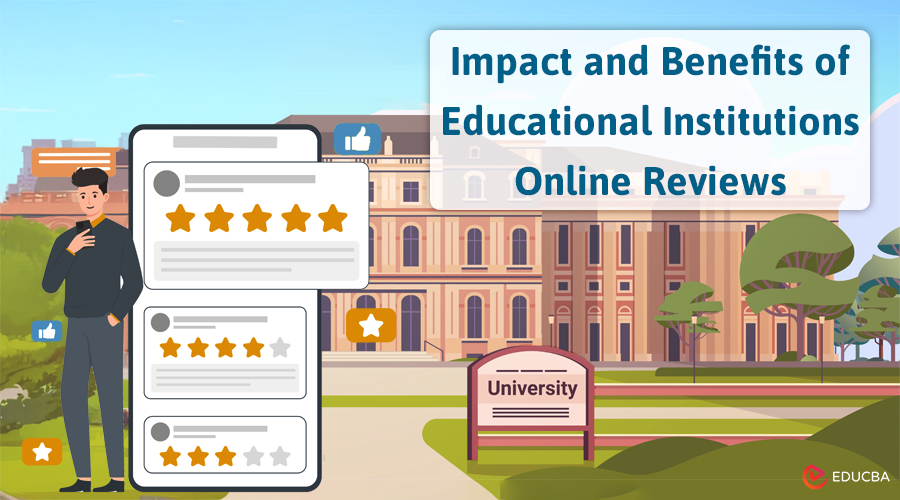Educational Institutions Online Reviews – Overview
Online reviews are shaping the reputation of educational institutions, as more parents and caregivers rely on them when selecting schools. Educational institutions online reviews help families choose the right school, especially for those with K-12 students. These reviews give parents valuable insights into the experiences of current students, families, and alumni, helping them make informed decisions.
Platforms like GreatSchools.org, Facebook, and LinkedIn are popular places where people share these reviews, both positive and negative, that significantly influence a school’s visibility and enrollment.
Why Are Online Reviews Important for Educational Institutions?
Online reviews are essential for educational institutions as they strongly influence student satisfaction and a school’s overall reputation.
- Positive reviews build trust with prospective parents, while negative feedback can hurt enrollment and credibility.
- Schools that actively manage their online reputation, like Maplewood Academy, have seen success by engaging with reviews, addressing concerns, and highlighting achievements.
- By leveraging reviews, social media, and success stories, schools can create a more substantial, transparent reputation, which is key to attracting new families.
- Community involvement and testimonials also play a significant role in shaping a school’s image, helping to boost visibility in a competitive landscape.
- Different reviews—such as student feedback, parent testimonials, and third-party evaluations on platforms like GreatSchools—collectively shape how prospective families perceive a school.
How Do Educational Institutions Receive Online Reviews?
Educational institutions receive reviews through various channels, including direct website reviews, third-party platforms like Niche, and social media interactions. Each of these channels plays a role in building trust and engagement with the community.
Direct reviews on a school’s website offer firsthand insights and can enhance credibility. On the other hand, reviews on third-party sites like GreatSchools.org help shape a school’s reputation in the broader community.
By responding thoughtfully to all reviews, schools can foster transparency, trust, and engagement with prospective families. Encouraging feedback from current students, parents, and alumni can strengthen a school’s online presence and improve its reputation.
How Do Online Reviews Influence Prospective Students?
Online reviews significantly affect how prospective students and their families choose educational institutions. Reviews provide an honest look into student satisfaction, academic performance, and school culture, which parents often rely on to guide their decisions.
Positive reviews can highlight strengths like a strong arts program, while negative feedback, such as safety concerns, may lead families to reconsider. The quantity and quality of reviews are essential—numerous, detailed reviews give families confidence in the school’s programs and overall environment.
How Do Educational Institutions Monitor and Respond to Online Reviews?
Educational institutions must actively monitor and respond to reviews to maintain a positive reputation. Engaging with feedback allows schools to address concerns and highlight positive experiences that resonate with prospective families.
Schools can use tools that track feedback across social media, review sites, and forums to monitor reviews effectively, helping them stay on top of public perception. Sentiment analysis software can also provide insights into trends, guiding institutions on how to respond appropriately.
Best practices for responding to reviews include timely, thoughtful replies that show appreciation for positive feedback and empathy when addressing concerns. This approach fosters trust, builds stronger community ties, and ensures families feel heard and valued.
How Can Educational Institutions Use Online Reviews to Improve Their Reputation?
Educational institutions can enhance their reputation by actively using online reviews to improve services and educational programs. Positive feedback can be featured in marketing efforts to highlight strengths, while constructive criticism offers valuable insights for improvement.
Schools value community input by responding to negative reviews transparently and making fundamental changes.
For example, partnering with online reputation management firms such as ReputationSciences and NetReputation helps schools manage their online presence, ensuring that they handle feedback appropriately.
Schools that incorporate feedback into decisions—like a high school revamping its curriculum or a charter school expanding extracurriculars—build stronger trust and engagement.
Sharing success stories through student and parent testimonials in marketing materials helps foster a personal connection, making the school more appealing to prospective families.
Recommended Articles
We hope you found this article helpful. Here are other similar blogs that you might find helpful.


